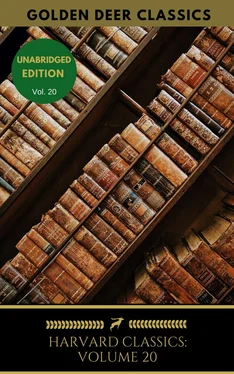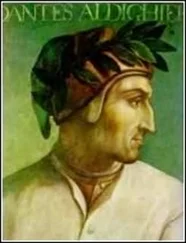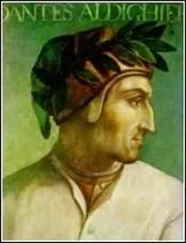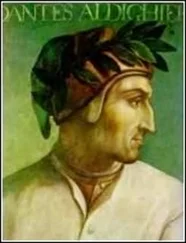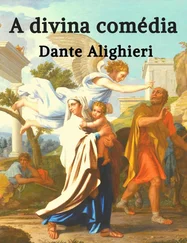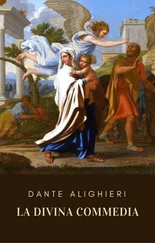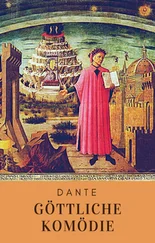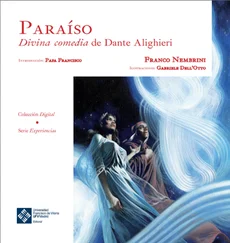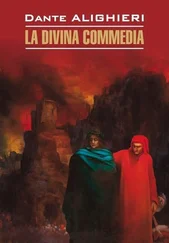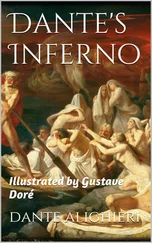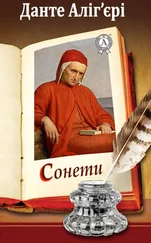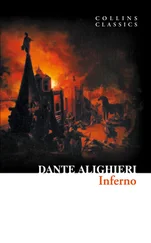Array Dante Alighieri - Harvard Classics Volume 20
Здесь есть возможность читать онлайн «Array Dante Alighieri - Harvard Classics Volume 20» — ознакомительный отрывок электронной книги совершенно бесплатно, а после прочтения отрывка купить полную версию. В некоторых случаях можно слушать аудио, скачать через торрент в формате fb2 и присутствует краткое содержание. Жанр: unrecognised, на английском языке. Описание произведения, (предисловие) а так же отзывы посетителей доступны на портале библиотеки ЛибКат.
- Название:Harvard Classics Volume 20
- Автор:
- Жанр:
- Год:неизвестен
- ISBN:нет данных
- Рейтинг книги:5 / 5. Голосов: 1
-
Избранное:Добавить в избранное
- Отзывы:
-
Ваша оценка:
- 100
- 1
- 2
- 3
- 4
- 5
Harvard Classics Volume 20: краткое содержание, описание и аннотация
Предлагаем к чтению аннотацию, описание, краткое содержание или предисловие (зависит от того, что написал сам автор книги «Harvard Classics Volume 20»). Если вы не нашли необходимую информацию о книге — напишите в комментариях, мы постараемся отыскать её.
1. The Divine Comedy, by Dante Alighieri
Also available:
The Complete Harvard Classics Collection (51 Volumes + The Harvard Classic Shelf Of Fiction)
50 Masterpieces You Have To Read Before You Die (Golden Deer Classics)
Harvard Classics Volume 20 — читать онлайн ознакомительный отрывок
Ниже представлен текст книги, разбитый по страницам. Система сохранения места последней прочитанной страницы, позволяет с удобством читать онлайн бесплатно книгу «Harvard Classics Volume 20», без необходимости каждый раз заново искать на чём Вы остановились. Поставьте закладку, и сможете в любой момент перейти на страницу, на которой закончили чтение.
Интервал:
Закладка:
Through perils without number now have reach’d;
To this the short remaining watch, that yet
Our senses have to wake, refuse not proof
Of the unpeopled world, following the track
Of Phœbus. Call to mind from whence ye sprang:
Ye were not form’d to live the life of brutes,
But virtue to pursue and knowledge high.’
With these few words I sharpen’d for the voyage
The mind of my associates, that I then
Could scarcely have withheld them. To the dawn
Our poop we turn’d, and for the witless flight
Made our oars wings, still gaining on the left.
Each star of the other pole night now beheld,
And ours so low, that from the ocean floor
It rose not. Five times reillumed, as oft
Vanish’d the light from underneath the moon,
Since the deep way we enter’d, when from far
Appear’d a mountain dim, [175]loftiest methought
Of all I e’er beheld. Joy seized us straight;
But soon to mourning changed. From the new land
A whirlwind sprung, and at her foremost side
Did strike the vessel. Thrice it whirl’d her round
With all the waves; the fourth time lifted up
The poop, and sank the prow: so fate decreed:
And over us the booming billow closed.” [176]
Canto XXVII
Argument.—The Poet, treating of the same punishment as in the last Canto, relates that he turned toward a flame in which was the Count Guido da Montefeltro, whose inquiries respecting the state of Romagna he answers; and Guido is thereby induced to declare who he is, and why condemned to that torment.
Now upward rose the flame, and still’d its light
To speak no more, and now pass’d on with leave
From the mild poet gain’d; when following came
Another, from whose top a sound confused,
Forth issuing, drew our eyes that way to look.
As the Sicilian bull, [177]that rightfully
His cries first echoed who had shaped its mould,
Did so rebellow, with the voice of him
Tormented, that the brazen monster seem’d
Pierced through with pain; thus, while no way they found,
Nor avenue immediate through the flame,
Into its language turn’d the dismal words:
But soon as they had won their passage forth,
Up from the point, which vibrating obey’d
Their motion at the tongue, these sounds were heard:
“O thou! to whom I now direct my voice,
That lately didst exclaim in Lombard phrase,
‘Depart thou; I solicit thee no more;’
Though somewhat tardy I perchance arrive,
Let it not irk thee here to pause awhile,
And with me parley: lo! it irks not me,
And yet I burn. If but e’en now thou fall
Into this blind world, from that pleasant land
Of Latium, whence I draw my sum of guilt,
Tell me if those who in Romagna dwell
Have peace or war. For of the mountains there [178]
Was I, betwixt Urbino and the height
Whence Tiber first unlocks his mighty flood.”
Leaning I listen’d yet with heedful ear,
When, as he touch’d my side, the leader thus:
“Speak thou: he is a Latian.” My reply
Was ready, and I spake without delay:
“O spirit! who art hidden here below,
Never was thy Romagna without war
In her proud tyrants’ bosoms, nor is now:
But open war there left I none. The state,
Ravenna hath maintain’d this many a year,
Is steadfast. There Polenta’s eagle [179]broods;
And in his broad circumference of plume
O’ershadows Cervia. The green talons grasp
The land, [180]that stood erewhile the proof so long
And piled in bloody heap the host of France.
“The old mastiff of Verrucchio and the young, [181]
That tore Montagna [182]in their wrath, still make,
Where they are wont, an augre of their fangs.
“Lamone’s city, and Santerno’s, [183]range
Under the lion of the snowy lair, [184]
Inconstant partisan, that changeth sides,
Or ever summer yields to winter’s frost.
And she, whose flank is wash’d of Savio’s wave, [185]
As ’twixt the level and the steep she lies,
Lives so ’twixt tyrant power and liberty.
“Now tell us, I entreat thee, who art thou:
Be not more hard than others. In the world,
So may thy name still rear its forehead high.”
Then roar’d awhile the fire, its sharpen’d point
On either side waved, and thus breathed at last:
“If I did think my answer were to one
Who ever could return unto the world,
This flame should rest unshaken. But since ne’er,
If true be told me, any from this depth
Has found his upward way, I answer thee,
Nor fear lest infamy record the words.
“A man of arms [186]at first, I clothed me then
In good Saint Francis’ girdle, hoping so
To have made amends. And certainly my hope
Had fail’d not, but that he, whom curses light on,
The high priest, [187]again seduced me into sin.
And how, and wherefore, listen while I tell.
Long as this spirit moved the bones and pulp
My mother gave me, less my deeds bespake
The nature of the lion than the fox.
All ways of winding subtlety I knew,
And with such art conducted, that the sound
Reach’d the world’s limit. Soon as to that part
Of life I found me come, and when each behoves
To lower sails and gather in the lines;
That, which before had pleased me, then I rued,
And to repentance and confession turn’d,
Wretch that I was; and well it had bestead me.
The chief of the new Pharisees [188]meantime,
Waging his warfare near the Lateran,
Not with the Saracens or Jews (his foes
All Christians were, nor against Acre one
Had fought, [189]nor traffick’d in the Soldan’s land),
He, his great charge nor sacred ministry,
In himself reverenced, nor in me that cord
Which used to mark with leanness whom it girded.
As in Soracte, Constantine besought,
To cure his leprosy, Sylvester’s aid;
So me, to cure the fever of his pride,
This man besought: my counsel to that end
He ask’d; and I was silent; for his words
Seem’d drunken: but forthwith he thus resumed:
‘From thy heart banish fear: of all offence
I hitherto absolve thee. In return,
Teach me my purpose so to execute,
That Penestrino cumber earth no more.
Heaven, as thou knowest, I have power to shut
And open: and the keys are therefore twain,
The which my predecessor [190]meanly prized.’
“Then, yielding to the forceful arguments,
Of silence, as more perilous I deem’d,
And answer’d: ‘Father! since thou washest me
Clear of that guilt wherein I now must fall,
Large promise with performance scant, be sure,
Shall make thee triumph in thy lofty seat.’
“When I was number’d with the dead, then came
Saint Francis for me; but a cherub dark
He met, who cried, ‘Wrong me not; he is mine,
And must below to join the wretched crew,
For the deceitful counsel which he gave.
E’er since I watch’d him, hovering at his hair.
No power can the impenitent absolve;
Nor to repent, and will, at once consist,
By contradiction absolute forbid.’
Oh misery! how I shook myself, when he
Seized me, and cried, “Thou haply thought’st me not
A disputant in logic so exact!’
To Minos down he bore me; and the judge
Twined eight times round his callous back the tail,
Which biting with excess of rage, he spake:
‘This is a guilty soul, that in the fire
Must vanish.’ Hence, perdition-doom’d, I rove
A prey to rankling sorrow, in this garb.”
When he had thus fulfill’d his words, the flame
Читать дальшеИнтервал:
Закладка:
Похожие книги на «Harvard Classics Volume 20»
Представляем Вашему вниманию похожие книги на «Harvard Classics Volume 20» списком для выбора. Мы отобрали схожую по названию и смыслу литературу в надежде предоставить читателям больше вариантов отыскать новые, интересные, ещё непрочитанные произведения.
Обсуждение, отзывы о книге «Harvard Classics Volume 20» и просто собственные мнения читателей. Оставьте ваши комментарии, напишите, что Вы думаете о произведении, его смысле или главных героях. Укажите что конкретно понравилось, а что нет, и почему Вы так считаете.
